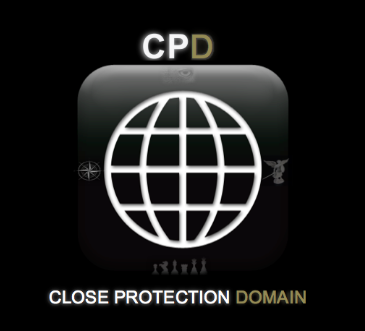Certificate in Terrorism Studies - St Andrews University
Page 1 of 1
 Certificate in Terrorism Studies - St Andrews University
Certificate in Terrorism Studies - St Andrews University
The Centre for the Study of Terrorism and Political Violence and the publishing house Informa, jointly offer an unparalleled professional education and training in global terrorism. This programme covers theory and practice, as well as counter-terrorism strategies and techniques. E-learning content is delivered in a collaborative learning environment, with tutor support for Offline assignments. In today's complex security environment, the Certificate enhances the skill and knowledge base so critical to countering the growing phenomenon of terrorism.
Experienced professionals will enhance their knowledge and sharpen their skills with the latest information and thinking about terrorist organisations and their modus operandi. Likewise, heads of organisations stand to benefit, as with the CSTPV they now have an opportunity to help their staff become more educated in the causes of terrorism and methods for countering terrorism at the deepest levels.
Request information: info@terrorismstudies.com
Experienced professionals will enhance their knowledge and sharpen their skills with the latest information and thinking about terrorist organisations and their modus operandi. Likewise, heads of organisations stand to benefit, as with the CSTPV they now have an opportunity to help their staff become more educated in the causes of terrorism and methods for countering terrorism at the deepest levels.
Modules:
Key Issues in International Terrorism (Core module for Certificate students)
Forming the core of the Certificate in Terrorism Studies course, the module examines the fundamental issues behind terrorism and the current responses to this threat. It explores the concept of terrorism, the types of terrorism and prominent terrorist groups. In addition it evaluates the international measures to curb terrorism and explores the role of business and media sectors in countering terrorist activities, while examining emerging trends in terrorism.
Participants critically examine:
The impact and effectiveness of terrorism as a political weapon
Reponses to terrorism: the international community, the democratic dilemma, and crisis and consequences management
The Al Qaeda terrorist organisation and strategies for dismantling the network
Requirements from the public, media and private sector in effectively countering terrorist threats
Emerging trends in terrorism post the 9/11 Al Qaeda attack on the US
Terrorist Ideologies, Aims, Beliefs and Motivations
What motivates terrorists? Understanding the terrorist mind-set is critical to countering terrorism effectively. This module enhances a participant's analytical ability by identifying the various strains of influence within today's terrorist groups and networks.
In this module, participants learn about:
The different types of ideology that motivate terrorism and the formation of terrorist groups
Other factors that may motivate terrorism including psychological, economic and cultural factors, as well as the types of state response
The terrorists’ worldview and the transmission of its propaganda through the media and the role of propaganda in recruitment
Different interpretations of events from the terrorist perspective and assess the impact of ideology
Potential future ideological trends in terrorism
Terrorist Modus Operandi
This module explores how the ideologies of various terrorist groups can have an impact on group structure, tactics, strategies and target selection. It examines types of terrorist tactics, looking into the role of ideology and the impact of state response on the evolution of terrorist strategies, before considering the possible future trends in terrorist tactics.
Special attention is paid to:
The relationship between a terrorist organisation's ideological make-up and the type of targets and tactics it might use
Drawing distinctions between “traditional” terrorism and new international terrorism including two case studies on the IRA and Al Qaeda / Global Salafi Jihad
Different types of tactics that terrorists employ and the importance of terrorist target selection, technology, recruitment, training and financing
The impact of state response on terrorist tactics
Best practice for effective inter-agency collaboration in countering terrorism
Terrorist group exploitation of the media, including satellite TV networks such as Al-Jazeera
International Policing Policy
The police role in the management of terrorism in modern democracies is critical. By exploring initiatives in various countries such as the United States, the United Kingdom, Australia and across Europe, this module examines in detail the role of police and other agencies involved in the efforts to prevent terrorism and manage terrorist attack incidents. It also examines the role of the police during pre-emptive operations and major terrorist incidents with the help of case studies.
Key themes in this module include:
The role police play in countering terrorism including combating radicalisation and fostering community cohesion
Implementing counter-terrorism strategy at a regional, national and international level
The relationship between the security services, police and intelligence
The role of the media and the military in counterterrorism policing
The deployment of technology
Development in counter-terrorism policing and anticipated issues for the future
Aviation Terrorism & Security
Beginning with a brief historical survey of aviation terrorism from Dawson's Field to Lockerbie, 9/11 and beyond, this module examines aviation terrorism from both theoretical and tactical perspectives. It discusses the prevailing and potential threats to civil aviation and the measures required to counter them.
Essential topics covered include:
Why aviation remains a key terrorist target and the need for effective aviation security
The evolution of aviation terrorism: hijack and sabotage bombing
The role of Al Qaeda in aviation terrorism
Emerging threats, the need for awareness and advanced measures in countering aviation terrorism
Comparative analysis of national and international measures needed in aviation security and international cooperation
Proposed solutions for countering attacks on aviation terrorism
Maritime Terrorism & Security
This module provides participants with a solid foundation in the complex and often obscure world of maritime security. The module assesses the threat of terrorism to the maritime industry and includes profiles of the various terrorist groups involved. It also presents a historical perspective on the emergence of maritime terrorism. Due to the recent proliferation of maritime piracy as a serious threat to international shipping along many of the major sea lines of communication, this module also analyses this phenomenon.
Participants will gain a solid foundation in:
The history of the presence and proliferation of maritime terrorism
Current threats to the maritime domain posed by piracy and terrorism
Capabilities of groups involved in maritime related terrorism and crime
The various threats to maritime trade and judging their impact and probability
Major maritime security initiatives to date, including legal requirements such as the International Ships and Port Security (ISPS) Code, the Container
Security Initiative (CSI), Proliferation Security Initiative (PSI) and the Customs Trade Partnership Against Terrorism (C-TPAT)
Technological solutions for ship and port security
The role of private security firms in combating piracy
Critical Infrastructure Protection
What is infrastructure and what makes it critical? Why is it imperative to protect it and what would happen if we chose not to protect it? These are all questions addressed in this module before studying the international necessity to protect these areas against a range of threats, and in particular that of terrorism, in an all hazards approach. By critically examining key areas, the module enhances participants’ understanding of this essential topic.
This module includes:
The importance of the protection of critical infrastructure and key resources
Case studies on nuclear energy, aviation and cyberspace security to understand the issues of criticality, vulnerability and threats to key assets
Critical infrastructure interdependency and Complex Adaptive Systems
Critical infrastructure protection vs. Critical infrastructure resilience
Future threats to critical infrastructure
Cyberterrorism
This module examines the concept of cyberterrorism and provides an introduction to the ways in which terrorists use the Internet and the politics of cybersecurity. It offers simplified explanations of the technology of the Internet and major types of cyberattack, with the aim of assisting students to gain a concrete sense of the issues that are under discussion. Note that the module does not provide a technical grounding in cybersecurity.
During your studies you will gain an understanding of:
The main definitional and conceptual issues needed to assess why the idea of ‘cyberterrorism’ may be relevant, and how it may be distinguished from other phenomena.
The culture and practice of computer hacking.
Basic technical principles of how the Internet works, and how it can be illegally exploited.
How the Internet is used as a weapon and a resource by activists, terrorists and governments.
The general principles of cybersecurity, and especially the political and legal issues at stake in developing regimes against cybercrime and, potentially, cyberterrorism.
Radicalistaion and De-Radicalisation - (NEW for May 2012 intake)
Why people turn to terrorism, how they become involved, and then eventually participate in terrorist activity is a complex area in the study of terrorism. By looking at the root-causes of terrorism and also if a ‘terrorist personality’ exists are key ways in which this area can be viewed and understood. This module looks at the process of radicalising individuals and defines key concepts such as radicalisation, disengagement, and de-radicalisation, as well as Islamism, Jihadism, Salafism and Fundamentalism.
The module also includes:
A study of German Red Army Faction terrorists sponsored by the German government in the 1970s to illustrate the arguments against the existence of common traits in those who become terrorists
‘Triggering events’ and understanding terrorism as a process – exactly what does the study of radicalisation and de-radicalisation aim at?
The process character or nature of becoming involved with terrorism - small steps vs major steps and what events lead to individuals becoming terrorists
A study of Western Jihadists such as the 7/7 bombers and typical ‘traditional’ terrorists such as PIRA or Italian red brigades activists to highlight the different natures of how individuals become involved
Disengagement – how do terrorists walk away
De-radicalisation – why do terrorists change their way of thinking and how to make the process of walking away irreversible
Implications for counter terrorism, when to intervene and how the process could be stopped or even reversed
Request information: info@terrorismstudies.com
 Similar topics
Similar topics» 10 DAY ADVANCED SURVEILLANCE COURSE (BTEC LEVEL 3 ADVANCED CERTIFICATE)
» New Terrorism Section
» Protecting Against Terrorism
» Great website on Terrorism in France
» Terrorism Tracker- November 2012
» New Terrorism Section
» Protecting Against Terrorism
» Great website on Terrorism in France
» Terrorism Tracker- November 2012
Page 1 of 1
Permissions in this forum:
You cannot reply to topics in this forum
 Home
Home Register
Register Log in
Log in




» OSINT's books
» Hire Bodyguard in London
» Contact for work
» Updated CV
» Introduction
» Intersec 2017
» HLR/D-HLR Instructor Sweden
» CP SIA, MIRA Quaified